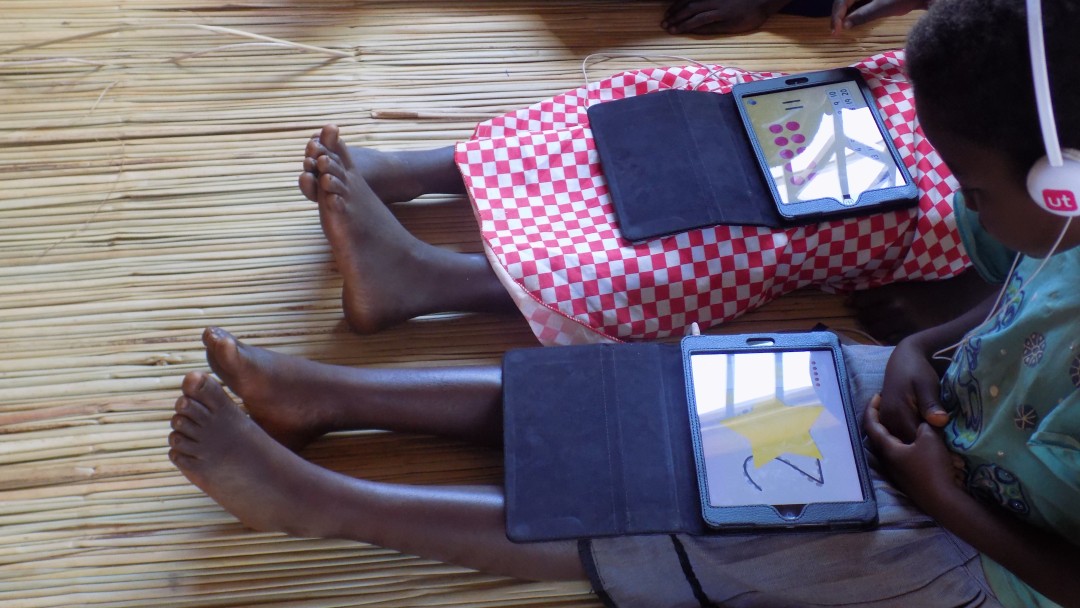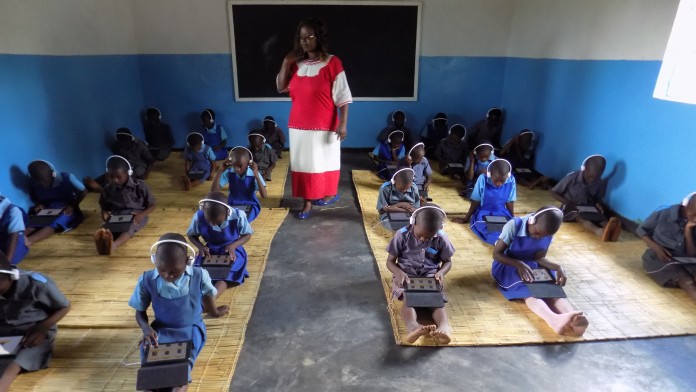

Conditions are challenging for teachers and pupils in Malawian primary schools. This is especially true for class sizes, which average 68 pupils per teacher – sometimes even over 100. In many schools, two classes are taught simultaneously in the same room. No wonder that 22% repeat a grade and only 37,6% of children make the transition to secondary education.
The Malawian government is making great efforts to change their situation. School attendance is compulsory and since 1994, primary school lessons in Malawi are free and the enrolment rates have risen. But class sizes remain too large – which is also due to higher birth rates – and few schools are appropriately equipped, while many teachers have insufficient training.
For several years KfW Development Bank has been involved in Malawi's primary school sector by rehabilitating Teacher Training Colleges (TTC) and by modernising primary schools with new classrooms, teacher housing, residential facilities for teacher trainees, administrative buildings and latrines. Three years ago KfW began promoting e-learning in primary school education with the Unlocking Talent programme, which has been available since 2014. As a supplement to lessons in the classroom, pupils (in the second grade only) can visit a learning centre for one hour each week and use a tablet to write letters, match objects or solve maths problems. Each child learns at their own pace and is allowed to repeat tasks as often as they like, while receiving support from specially trained teaching staff. One experience is that the children are happy about their visible progress and enjoy learning with the tablet. The result is that they are also more engaged and motivated in group lessons and have an attitude of determination. The number of skipped days has fallen sharply.
The apps are from the British non-governmental organisation Onebillion, which launched Unlocking Talent in 2014 together with the Norwegian development cooperation, UNICEF and DFID. Their aim: that one billion children can read and do maths in their native languages – supported by learning software programmed by Onebillion. Malawi's national language is Chichewa.
The second phase of the project was launched in 2018 and is funded with EUR 16 million from the Norwegian development cooperation and KfW Development Bank (FC amount: EUR 13 million). The FC funds are intended to be used for construction of up to 178 learning centres by 2023 and the purchase of solar cells and tablets – benefiting up to 156,000 pupils.
A team from the University of Nottingham evaluated the first phase of Unlocking Talent; the results show consistently good learning progress and a downturn in gender-specific performance gaps.
Lamulo Nsanja is an economist with over 10 years of professional experience with development cooperation in Malawi. His main focus areas primarily include the social sectors, in particular education and healthcare as well as public finance and economic management. Lamulo is working as a Senior Country Economist for the education sector for KfW Development Bank's office in Lilongwe. He confirms that, “Especially for children with more potential, digital classrooms increase the opportunities for education, improving them and making them more plentiful – an important prerequisite for vocational training and employment.”